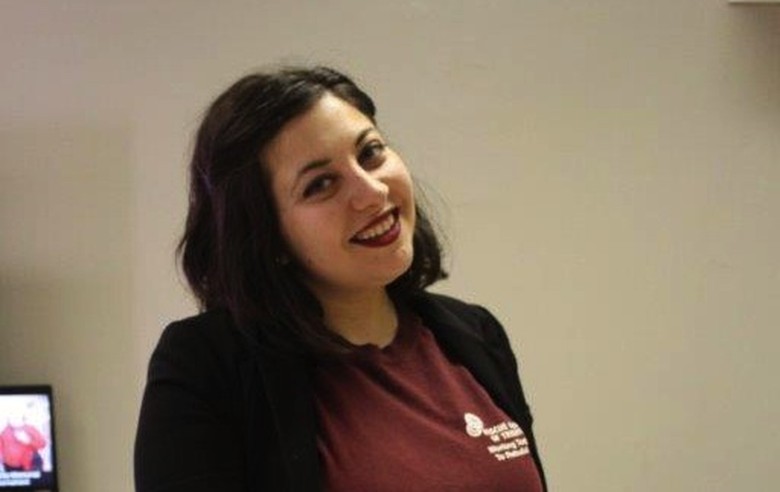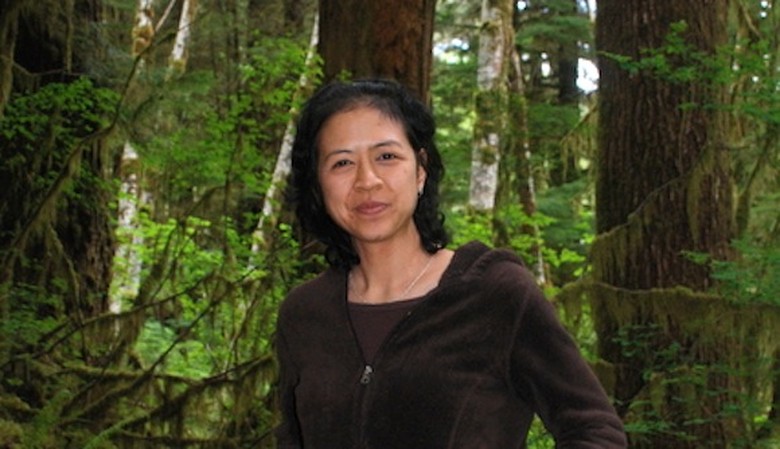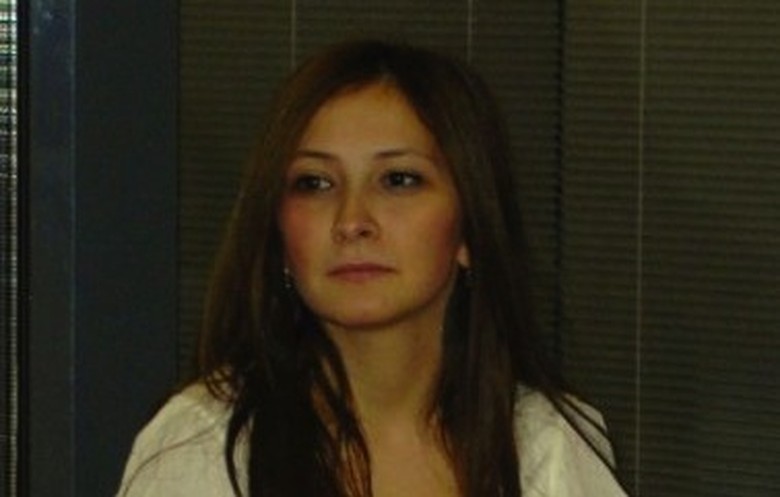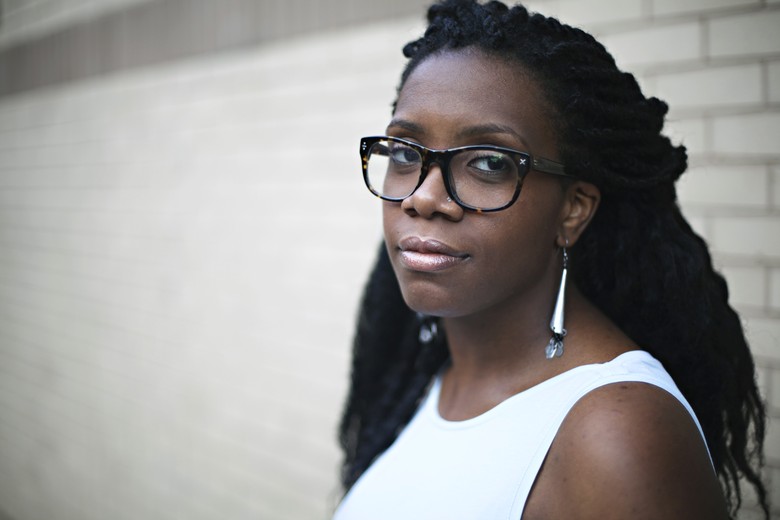how to become a paid activist
A lot of people ask me how I got started in my career, and honestly, I started really young. At 15, I got involved in human rights through Amnesty International, which gave me the understanding and foundational skills that made me feel like I could actually make a difference and impact human rights.
Sometimes, I would hit roadblocks along the way; from adults telling me my work in human rights was "just a hobby" to others saying it would be impossible to make a living in this line of work. But, years later, I still work closely with Amnesty and have continued my work intersecting travel, media, human rights, and education and trying to inspire others to do the same.
These days, getting involved in a cause you care about is easier than ever because of all the growing social good ventures out there. However, some people are still hesitant to pursue a career in a cause they care about because it's seen as off the beaten career path.
But it doesn't have to be. I assure you, your passion for social good can be the foundation for an amazing career. To give you some inspiration, I spoke with five talented women from around the world to find out how they successfully turned their activism and passion for social causes into a career.
Regan Mumolie
Manager of Administration, Rescue Mission of Trenton

How did you get your start?
When I graduated with my master's, I was set on joining the foreign service or working for an agency that would take me abroad to do research and reporting. Instead, an ad for an admin job at a nonprofit in Trenton, NJ that focused on services for the homeless, the hungry, and the addicted caught my eye, and I've been there ever since.
We sometimes focus more heavily on international causes over local ones. What have you learned about working in local human rights?
When we talk about global human rights issues—devastating poverty, access to healthcare and education, and structural inequality—our first thought is often to look away from our own backyards. But in a small, formerly industrial city like Trenton, these issues are front and center. Unemployment and underemployment rates are high, desirable affordable housing is scarce, public safety is a major concern, and our high school is literally crumbling.
But I love my job. I'm so proud of the agency that I work for and the services we provide to those who depend on us. For example, a co-worker who works in our emergency shelter had been doing some manual work one day and was on his way home—just absolutely filthy, down to his socks and shoes. As he was walking home, one of the individuals who stays in our shelter pretty frequently stopped him and asked about his dirty socks. My co-worker explained, and the client replied that having dirty socks is the worst and pulled out a clean pair from his bag. The mutual respect we have with our clients and their ability to give back never ceases to amaze me.
What advice do you have for young activists who care about a cause and want to make a career out of it for the long haul?
Think about what your talents are and how you can best serve the cause close to your heart. Use every opportunity to learn about those you are working for. This will not only deepen your commitment to the cause; it will deepen your understanding and build deep roots to keep you going through the long haul.
Hathai Sangsupan
PhD Candidate in Forest Science/Ecology at Oregon State University

How did you get your started in your career in environmental science and work?
I have always loved living things. Growing up in Florida, we lived in a cul-de-sac beside a retention pond. On the weekends, my favorite activity was to fish minnows, tadpoles, and snails out of the pond and observe them or take them home as pets. Caring about the environment and the things that live in it just seemed to spring naturally from these experiences.
It also stems from my parents, who are both immigrants to the U.S. from Thailand. My father used to tell me stories about the beautiful forests that he hunted in when he was a boy. His stories included so many animals, but when I actually visited Thailand as a teen, the hills that I saw on our drive through northern Thailand were covered in stumps, rather than trees.
As an undergraduate student in environmental science, I learned about the problem of deforestation and the downward spiral it can have on our environment. After some soul searching, I eventually decided that I wanted to do something that would be practical for forest restoration, as a way of reversing some of the damage and helping both humans and wildlife.
Everyone is going "green," but does it really make an impact?
I've witnessed and participated in volunteer tree plantings, and, honestly, I wondered how a few thousand trees here and there stack up against the millions of hectares of degraded and destroyed forests worldwide.
I think now, though, that going "green" in small actions has the potential to make a big impact. A planting in one spot isn't going to make much of a difference individually, but each time we participate in or hear about a tree planting, we internalize the importance of our forests and the potential for us to do something positive to improve forests. We communicate that importance to others (now even more rapidly through social networking), and over time, I believe this has a ripple effect that is gradually changing the way we relate to and treat our environment.
What advice do you have for someone who wants to get involved in environmental issues, but doesn't know where to get started?
The sheer scope of the environmental issues facing our world can make you want to just throw up your hands in surrender or bury your head in the sand. So, the most important thing to do is to just start somewhere. While no one person, no matter how talented, can single-handedly solve all of the environmental crises facing our world, all of us working together can make an enormous impact. Find the issue that you're most passionate about and then do your research. Every new experience you have will build your skill set and open you up to new opportunities.
Soofia Mahmood
Photographer and Artist

Living in Pakistan, what were some causes that always stood out to you?
As a woman, I've faced social and cultural barriers all my life, some of which I accepted without much resistance. But there came a point in my life when I realized my subservience was part of the problem, and that realization has been my voice ever since.
How has your career evolved over the last few years?
I had a dream to be an artist, but chose the more practical option of earning my MBA instead. Eventually, though, my daughter was my motivation for a career change. I wanted her to be stronger and more confident than I was growing up, and I realized that in order to be that role model, I needed to walk the talk.
So I started exploring my inner artist using photography and words and found my voice. I haven't looked back since. When I returned to Pakistan, my career kept moving in the same direction, and I realized that the only person who had been standing in my way all these years was myself!
Do you see your work as a form of activism?
I've always been uncomfortable using labels—especially those like "feminist" and "activist." I am not ready to confine myself and my work to those roles. I am just continuing on a path that I feel is right for me. I write and photograph my own opinions, experiences, and feelings. If it resonates with some people, it makes me feel good; it makes me realize that no one in this world, no matter how different or unique, is ever alone.
If my work offends some people, that also makes me feel pleased; it shows that my work is strong enough to affect others.
What advice do you have for a young woman in Pakistan or in the world who wants to work for a cause she cares about but doesn't know where to get started?
Based on my own experiences, you have to truly believe in the cause and really want it. Then, life will offer you opportunities. The challenge then is to pick the right ones. Along the way, you may make decisions that seem like mistakes—but in the long run, you'll see how they were stepping stones that kept you moving in the right direction.
On a more practical note, what helped me get started was working for myself without expecting an audience or praise. I just kept writing and taking photographs and volunteering for projects that seemed relevant until I had tangible proof of my abilities—a portfolio. It helped me gain confidence and improve my abilities, and when I met the right people or came across good opportunities, I wasn't empty handed.
Aygen Bekte
Education and Training Specialist, Youth for Understanding International Educational Services

How did you get your started in your career in Turkey?
As a 16-year-old teenager, I was actively involved in a city youth council in Turkey, organizing services for young people, participating in local decision-making, and advocating for youth policies in our city. Through that, I got connected to other nonprofits all over Turkey and was able to travel throughout the country, as well as Europe and the Middle East, to educate young people and civil leaders and raise awareness on topics such as human rights and diversity.
What have you learned about the impact of inter-cultural exchange?
Youth for Understanding is the one of the world's largest and most respected international educational exchange organizations. I was one of the volunteers who helped to establish YFU in Turkey in 2007, and I currently work with staff members who support YFU's inter-cultural exchange participants.
One of the main impacts of inter-cultural exchange is challenging status quo. Our participants are choosing to see the world from another perspective; to live in a country where they may not speak a word of the language; to give up their favorite dish in their home country for unfamiliar ones; to question their values and how they perceive right and wrong.
Families who host our students are the same. They open their house to a stranger who offers a new perspective. It's a life-changing experience. Creating those kind of connections between people is how we build understanding between cultures and discourage racism, discrimination, and stereotypes.
Wagatwe Wanjuki
Writer, Speaker, and Organizer at Know Your IX

How did you get your start? At what moment did you know you were an activist?
I first got interested in activism when I joined Amnesty International in high school. I remember seeing posters about child soldiers and instantly felt compelled to do something to stop this injustice.
I think the moment where I actually was willing to claim being an activist is when I was a student at Tufts and started a movement to reform the campus sexual assault policy. Creating the strategy for the campaign and being a part of the public face really brought home how much of an activist I was—and had been for a while.
We sometimes have a tendency to focus on international issues instead of local ones. What have you learned about working on issues at home, and how have you seen your impact?
Working on issues at home makes it more personal for the people we're trying to convince to take action. For example, the number of people affected by campus sexual assault is incredibly high, which makes it easy to find people with personal stories to share—and that kind of storytelling is a powerful tool.
The impact has been overwhelming. Just this year, the White House created a task force to address the issue in response to the work of myself and my co-organizers. Politicians in both the Senate and House introduced bills to better protect students. Current and former students are more willing to tell their stories, and the media is paying attention. It's powerful.
What advice do you have for a young activist who cares about a cause and wants to turn that passion into a career?
Find organizations that are engaged with the issue you care about, and see how you can get involved. More importantly, don't think any action—or person—is too insignificant in the fight for justice. Every little bit counts.
Photo of woman carrying balloons courtesy of Shutterstock.
how to become a paid activist
Source: https://www.themuse.com/advice/how-to-turn-a-cause-you-care-about-into-your-career
Posted by: kochapans1983.blogspot.com

0 Response to "how to become a paid activist"
Post a Comment